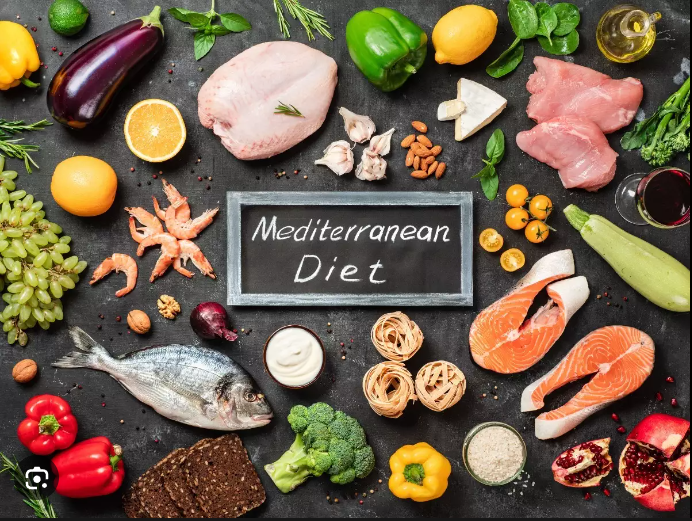The Mediterranean Diet is the No. 1 Best Diet Overall. It’s also a top-rated diet for those looking for a heart-healthy diet, a diabetes-friendly diet, or to promote bone and joint health. But don’t confuse Americanized Mediterranean menus, which often feature too much pasta, beef, and cheese, with healthy eating. Learn more about what the Mediterranean diet is, how effective it is for losing weight, and what foods to eat in our Mediterranean Diet review.
What is the Mediterranean Diet?
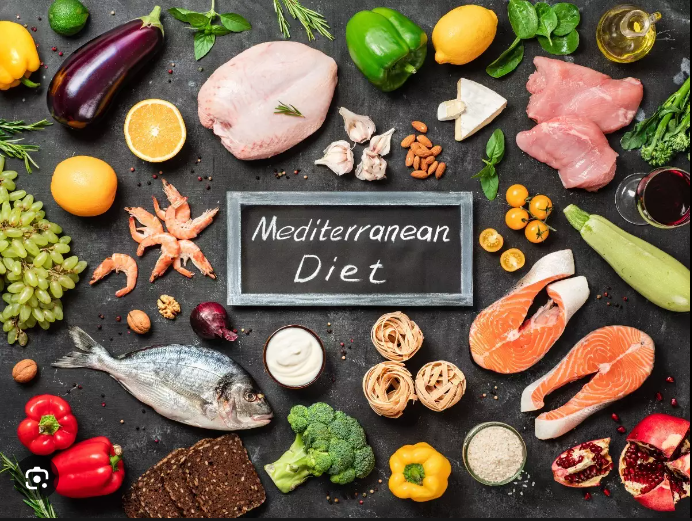
Also read-The ProLon Diet: What Is It, Benefits And More
Who hasn’t dreamed of escaping to the Mediterranean? The sea, the culture, the history, and the food! Instead of the sugar plums popularly featured in ‘Twas the Night Before Christmas, visions of tomatoes, olive oil and wine likely dance in your head. But is it too good to be true? Yes and no.
The food and eating habits of the Mediterranean region, which encompasses not only Italy but also Croatia, Turkey, and Monaco, are undoubtedly both delicious and healthy. However, the “Americanized” version of Mediterranean food—deep-fried cheese and falafel, heavy pasta dishes, and a lot of beef and pork—is anything but healthy.
Despite the fact that residents of the diverse Mediterranean region consume a variety of foods, whole grains, legumes, nuts, and extra-virgin olive oil make up the majority of their diet. Lean poultry in moderation and plenty of shellfish are also permitted.
Instead of emphasizing a particular vitamin or food type, the Mediterranean diet concentrates on diet quality. Numerous studies have demonstrated how it increases longevity and improves quality of life while lowering the risk of chronic illnesses, including heart disease and type 2 diabetes.
The Seven Countries Study, which examined the connection between diet and cardiac illnesses in around 13,000 men from 1958 to 1999, is where the nutritional worth and health advantages of the Mediterranean diet were first made public.
The study showed that intake of total fat has less of an impact on cardiovascular health than does the kind of fat—saturated, monounsaturated, or polyunsaturated—does. Although the recommended percentage of calories from fat in a diet is 30%, if the majority of the fats taken are unsaturated, the percentage may be as high as 40%.
How Does the Mediterranean Diet Work?
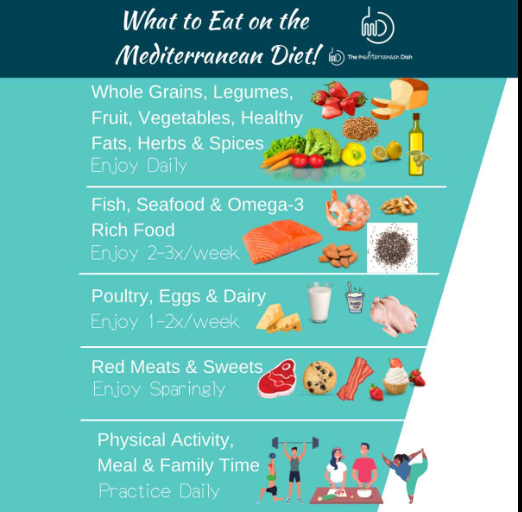
1. Overflow your plate with a variety of foods.
2. Consume every day a variety of fresh produce, including whole grains, lentils, beans, nuts, olive oil, herbs, and spices.
3. Consume fish and seafood at least twice every week.
4: In moderation, poultry, eggs, cheese, and yogurt are OK.
5. It’s advisable to save red meat and sweets for special occasions.
6. Red wine is okay once in a while.
No single Mediterranean diet exists. Turkish cuisine differs from that of the French and Spanish, and Greek cuisine differs from that of the Italians. The Mediterranean diet even has a Costa Rican variation. But many of their guiding concepts are similar. Oldways, a nonprofit food think tank in Boston, produced a consumer-friendly Mediterranean diet pyramid that provides instructions on how to fill your plate—and perhaps wineglass—the Mediterranean way in collaboration with the Harvard School of Public Health and the World Health Organization.
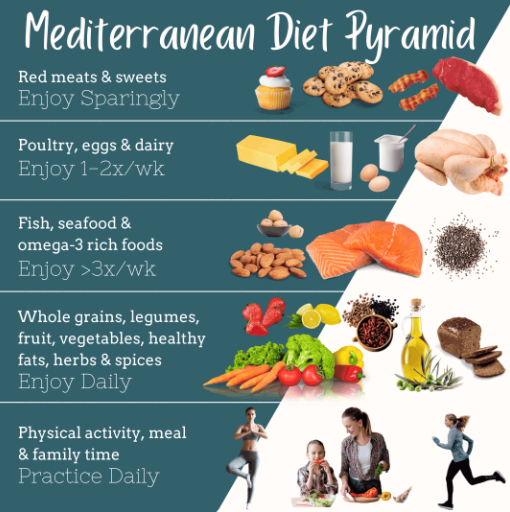
The Mediterranean diet makes little room for the saturated fat, added sugars, and sodium that are abundant in the traditional American diet since it places a greater emphasis on nutrient-dense fruits, vegetables, whole grains, nuts, and seeds. People who follow a Mediterranean-style diet consequently live longer, rate their quality of life as being greater, and are less likely to contract chronic diseases like cancer and heart disease.
There are several misunderstandings regarding the Mediterranean diet, including the idea that eating copious amounts of processed cheese and starchy pasta satisfies the diet’s nutritional requirements. The Mediterranean diet allows for a limited amount of whole-wheat pasta, but it must be topped with a variety of fresh vegetables and beans, drizzled with olive oil, and perhaps a little amount of natural cheese.
How Much Weight Can I Lose on the Mediterranean Diet?
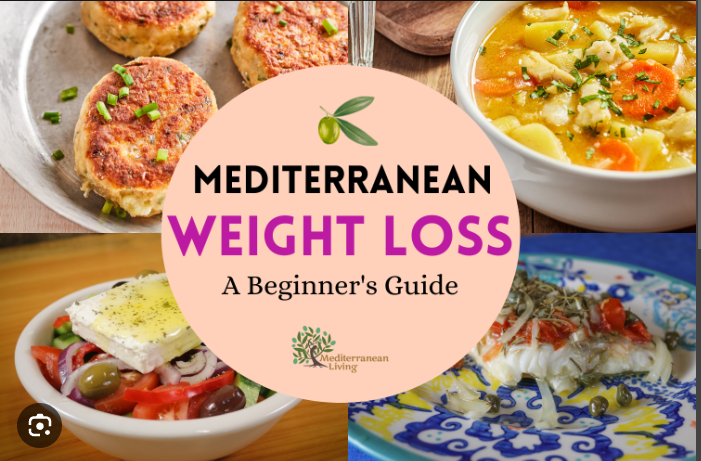
Yes, it is possible to lose weight while following a Mediterranean diet, but you must be careful with your food choices and serving sizes. For instance, eating too much ice cream, cookies, whole grains, or olive oil can prevent you from losing weight, even though the former will undoubtedly make you healthier.
A Mediterranean diet is a good one for both weight loss and weight maintenance, according to numerous studies. According to Elena Paravantes-Hargitt, a registered dietitian nutritionist who specializes in the Mediterranean diet and author of “The Mediterranean Diet Cookbook for Beginners,” one of the most crucial aspects of the Mediterranean diet in terms of weight loss is that it is simple to follow for extended periods of time.She is also the founder of a website dedicated to the Greek-Mediterranean diet.
How to Get Started on the Mediterranean Diet
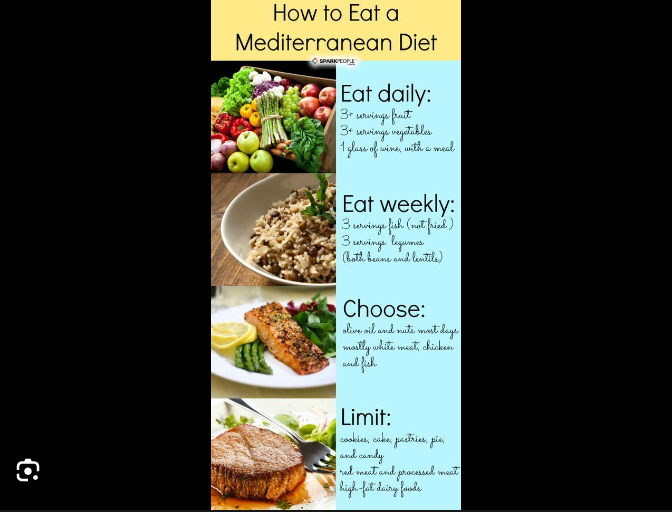
Consider whole grains or veggies as the main dish and meat as the side dish. Learn to enjoy fruit as a sweet ending to your meals. A pleasant and healthy dessert is made by grilling, broiling, or baking fruit with a squeeze of citrus juice before serving it with a dollop of vanilla yogurt and a sprinkling of cinnamon. Search for recipes online and venture outside Greece and Italy’s borders. Have fun and use your imagination. Plan some meals and snacks in advance to save yourself the stress of having to decide what to make when you’re hungry and weary.
Also read-Noom Diet: Important Information
source images-google







